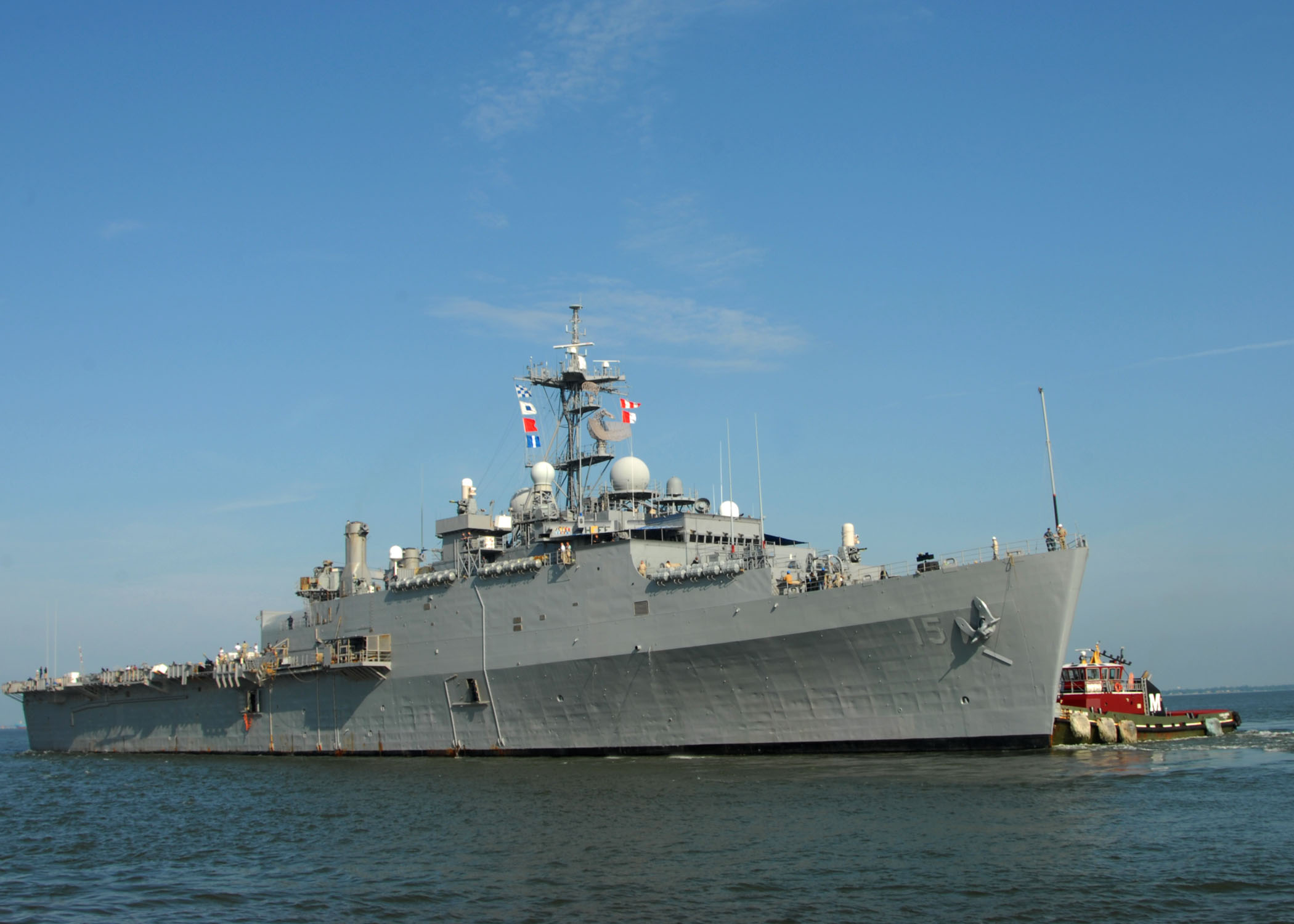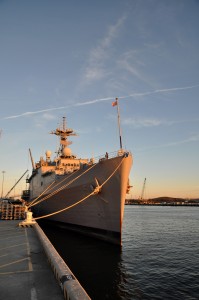
LOTS at Stake in Middle Eastern Waters
Exactly one week ago, in response to escalating tensions in the Persian Gulf, the USS Ponce sailed into waters off the coast of Bahrain. Her arrival was a rebirth of sorts, marking the beginning of a new shift in US naval strategy.
As recently as March of this year, the Ponce was destined for euthanasia—an end-the-days spot with the rest of the Navy’s mothball fleet in Philadelphia; however, somewhere along the way her story got rewritten.
With a recent face lift manifest in the addition of modular barracks on deck, an upgraded navigation system, and general refurbishment, the forty-six year old Ponce is no longer a mere transport ship. The newly classed Afloat Forward Staging Base (Interim) is now manned by a “hybrid” crew of Navy and Marine Sealift Command sailors.
It has the potential to serve a multidimensional purpose as an “operations hub” for Special Forces conducting a variety of different missions. Although her current mission is solely concerned with countermine measures, her projected uses range from hostage rescue to direct strike capabilities.
The Ponce is emblematic of several developments in the military’s national security strategy: first and foremost, she is the figurehead of pointed, preemptive military build-up in response to increasing Iranian threats to close the Strait of Hormuz.
Secondly, she represents the steely undercurrent of the nature of America’s interactions with Iran. While the P5+1 diplomatic negotiations continue over Iran’s nuclear project and the Obama Administration seeks to “plug loopholes in its sanctions against Iran,” the Ponce’s presence in the region, combined with the arrival of other significant military reinforcements , is a reminder that the administration is keeping the military option on the table. According to one senior administration official, “When the president says there are other options on the table beyond negotiations, he means it.”
Finally, and perhaps most importantly, the Ponce is also an indicator of the political work America needs to do at home— chiefly in terms of ratifying the Law of the Sea Treaty.
As the Navy explores the potential strategic advantages to be gained from such a multifaceted AFSM (I) as the Ponce, the need for the United States to accede to the Law of the Sea Convention becomes increasingly paramount. The question here is not about whether the Law of the Sea would allow the United States to retaliate militarily against Iranian threats to close the Strait of Hormuz, nor is it about whether under the treaty Iran has the right to close the Strait in the first place.
With or without the treaty, the United States could proceed to respond to the current Iran tension with an escalation of naval power in the region; however, what the Law of the Sea would provide the United States is something crucial and entirely essential to a smarter, more effective national security strategy— legitimacy.
As a party to the Law of the Sea Convention, the United States and its naval fleet would be protecting the Freedom of Navigation and the Right to Innocent Passage in the Strait of Hormuz with the full force of international law behind it. Even though Iran itself is not party to the convention, America’s ratification would create a new international norm, thus opening the door to a healthy and stable multilateralism in response to crises of global import such as the one we are facing today.
Considering that U.S. experts estimate that Iran could build a nuclear weapon in one year— should it decide to do so— in addition to conflicting, yet alarming reports that the Iranian government is considering legislation to close the Strait of Hormuz through which one fifth of the world’s oil supply is shipped, there has never been a better time for the United States to preemptively decide to act within an international legal framework.
The Law of the Sea would be a force-multiplier for American national security strategy. Ratification would enable the United States to use its military prowess in the most holistic, global consensus-building manner possible.






